Wife reflects on husband's slave camp experience
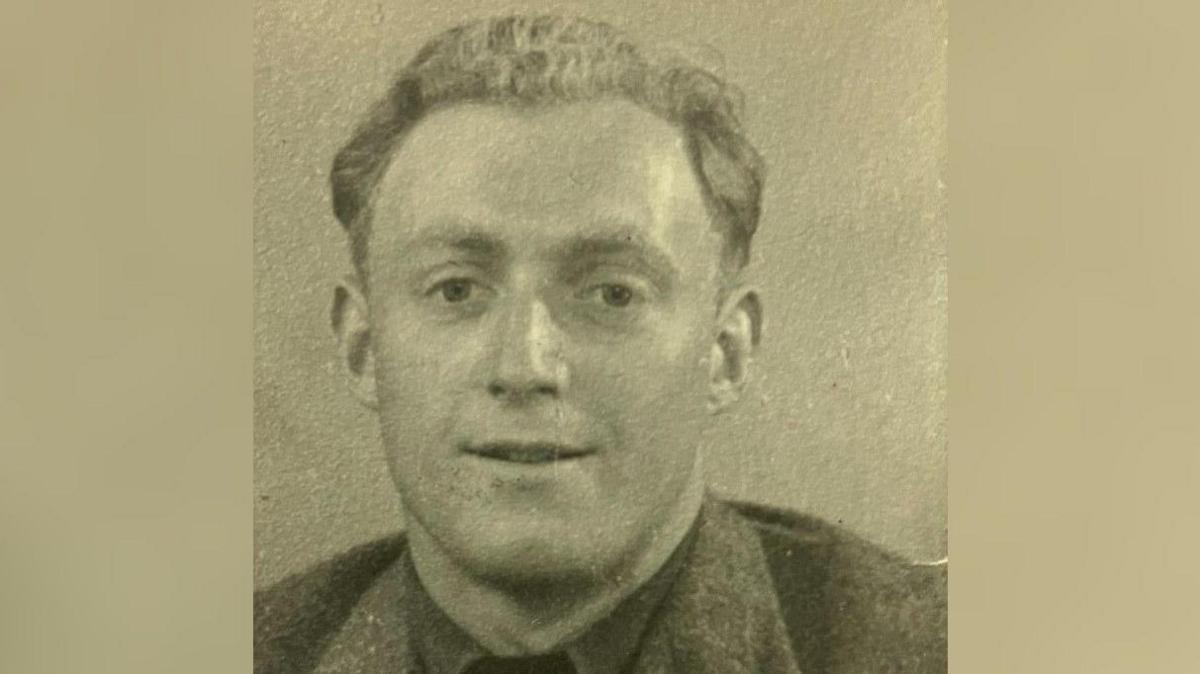
Gordon Prigent was forced to build an occupation camp in Alderney
- Published
A woman said her late husband's experience working at a German slave camp in Alderney affected him for the rest of his life.
Iris Prigent, 88, said her husband Gordon Prigent was 19 years old in late 1943 and living in Jersey when the Germans demanded he work for them, as he was then employed as an apprentice plasterer and they wanted someone with his skillset.
Mrs Prigent described her husband's experiences as Jersey marks 79 years since the island was liberated from Occupation at the end of World War Two.
Unhappy that he should be expected to work for the people who had occupied his island, Mr Prigent refused - and the German authorities punished him severely before transporting him to Alderney.
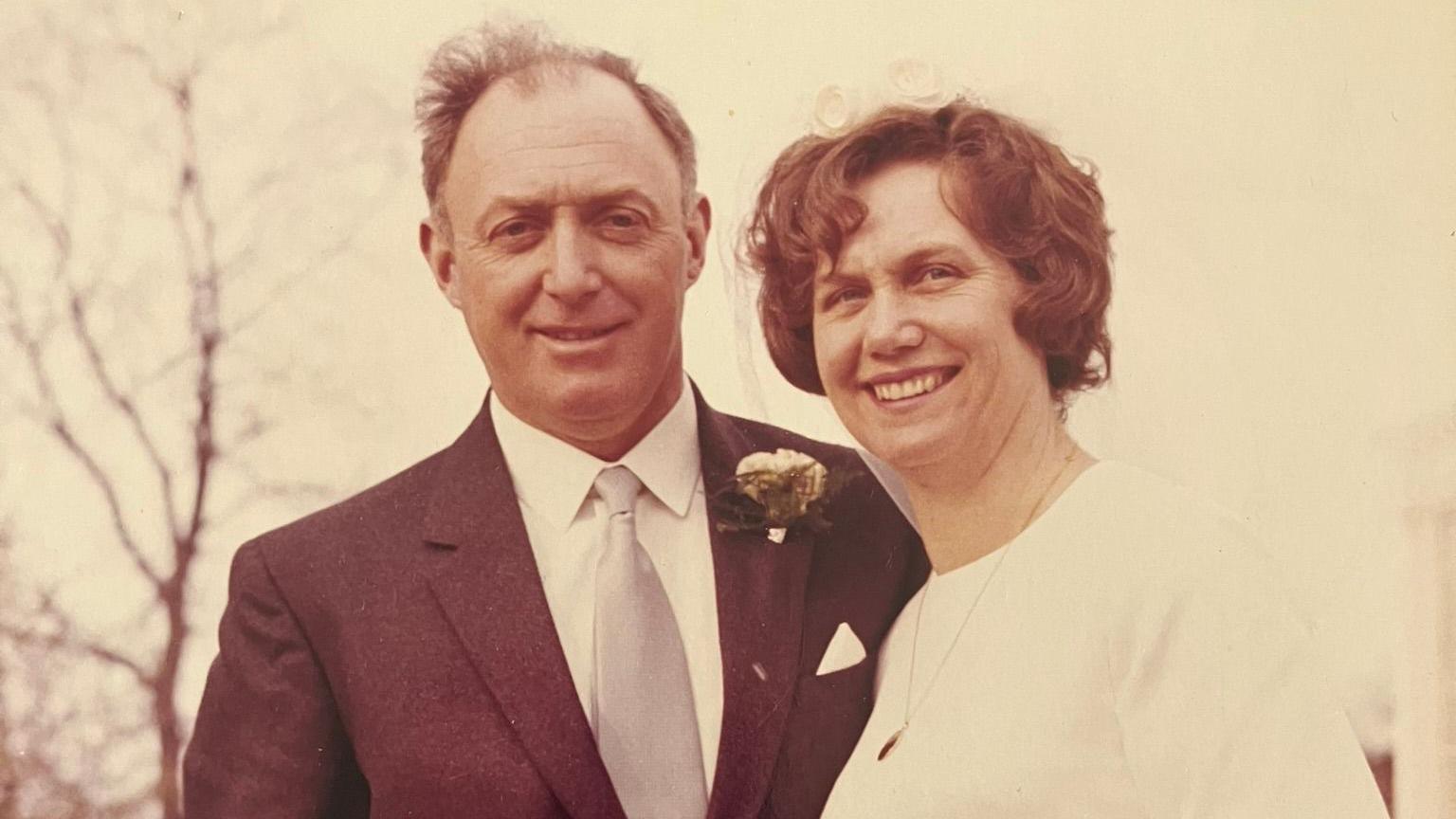
Iris Prigent said what her husband Gordon witnessed affected him for the rest of his life
Mr Prigent was taken from his home at 3 Hope Street to the northernmost Channel Island which had been all but evacuated before the Germans came to occupy it in 1940.
There four slave labour camps had been set up to hold the unfortunates whose task was to build the bunkers, gun emplacements and walls that would turn the island into an impregnable fortress, according to Hitler's wishes.
Alderney was given the codename "Adolf Island" and prisoners were brought there from 27 countries.
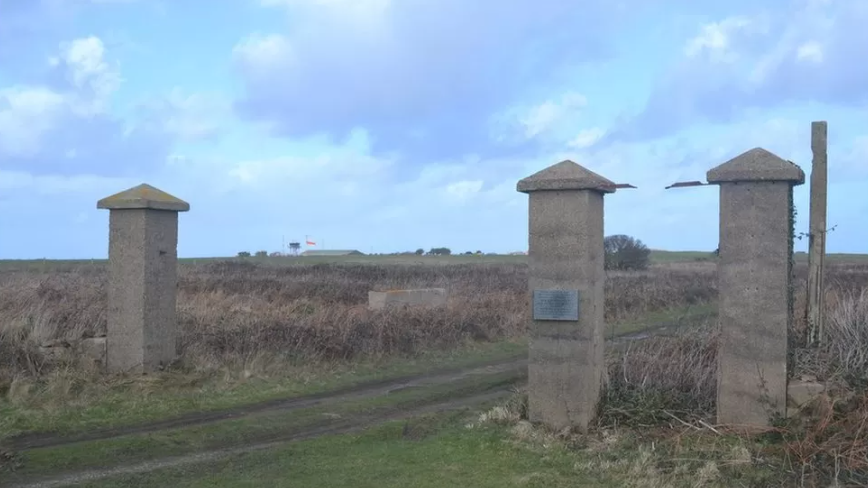
Four slave labour camps were set up in Alderney during the Occupation
Mr Prigent was forced to carry out a variety of jobs, on a meagre diet and with regular beatings.
Once, because he was too slow to get out of his bunk, a Nazi guard smashed Mr Prigent's teeth with a truncheon.
Mrs Prigent said the cruelty he witnessed stayed with him in later life, and that he "never spoke about it".
She said: "Some nights he had nightmares - we'd be in bed and I'd be woken up with 'Achtung, Achtung, Achtung!' [attention], and he'd be standing next to the bed, talking, you know, to a German who wasn't there.
"I never woke him up, because I thought he might strike out at me, thinking I was a German."
Mrs Prigent said the huts in the camp accommodated two per bed, but when there were a lot of them they "used to make them move over and get three in a bed".
"Some nights, if he was having a nightmare, he'd push me to make room for this other person to get in," she said.
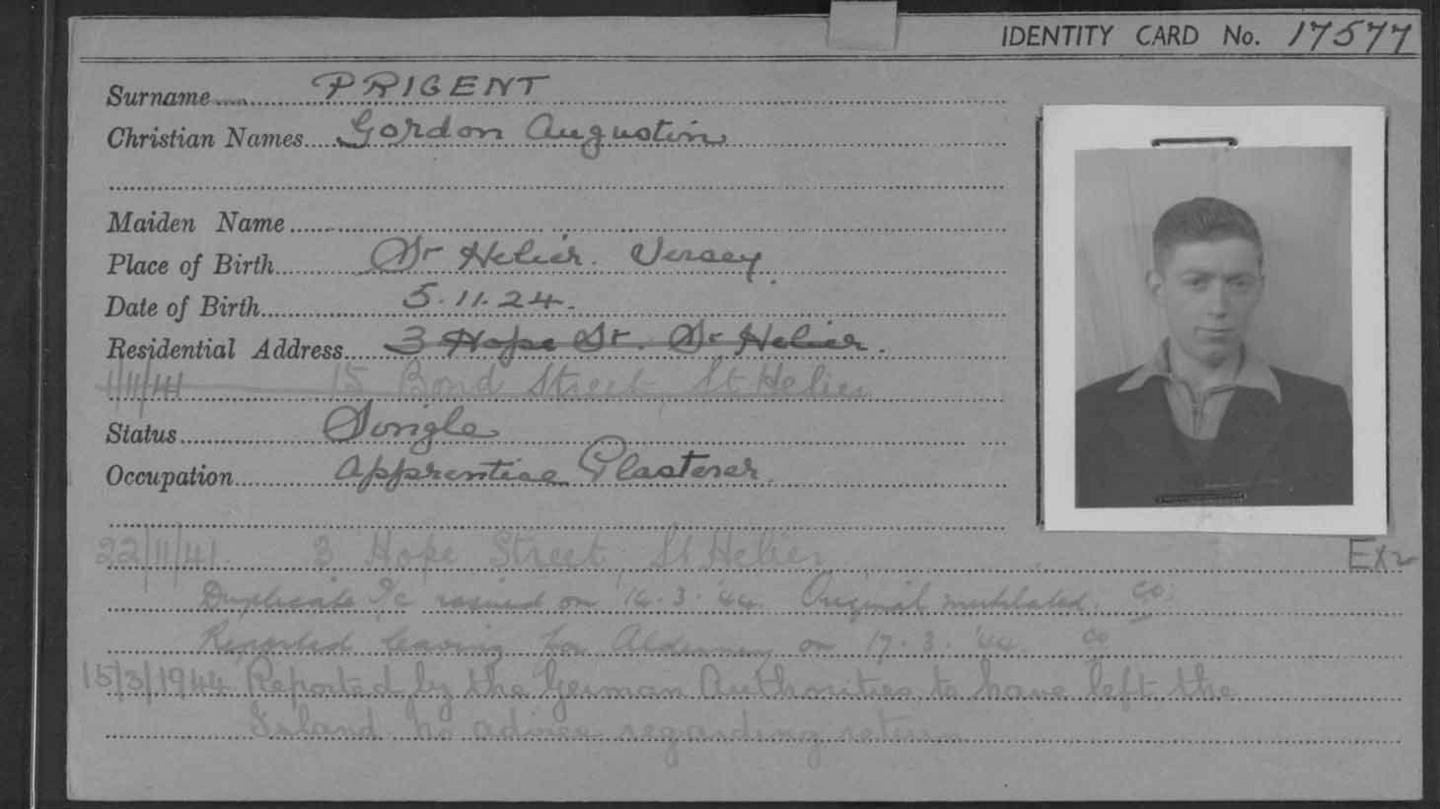
Mr Prigent was forced to carry out a variety of jobs, on a meagre diet and with regular beatings
Mr Prigent's story is set to be remembered on one of 20 special memorial stones that will be be set into pavements across Jersey.
Stolpersteine are cobblestones covered with a brass plaque which provide details of Occupation survivors.
The stones will bear the name of other people from the Occupation, including John Max Finkelstein who survived Buchenwald concentration camp and Peter Hassall who tried to escape from the island in a boat.
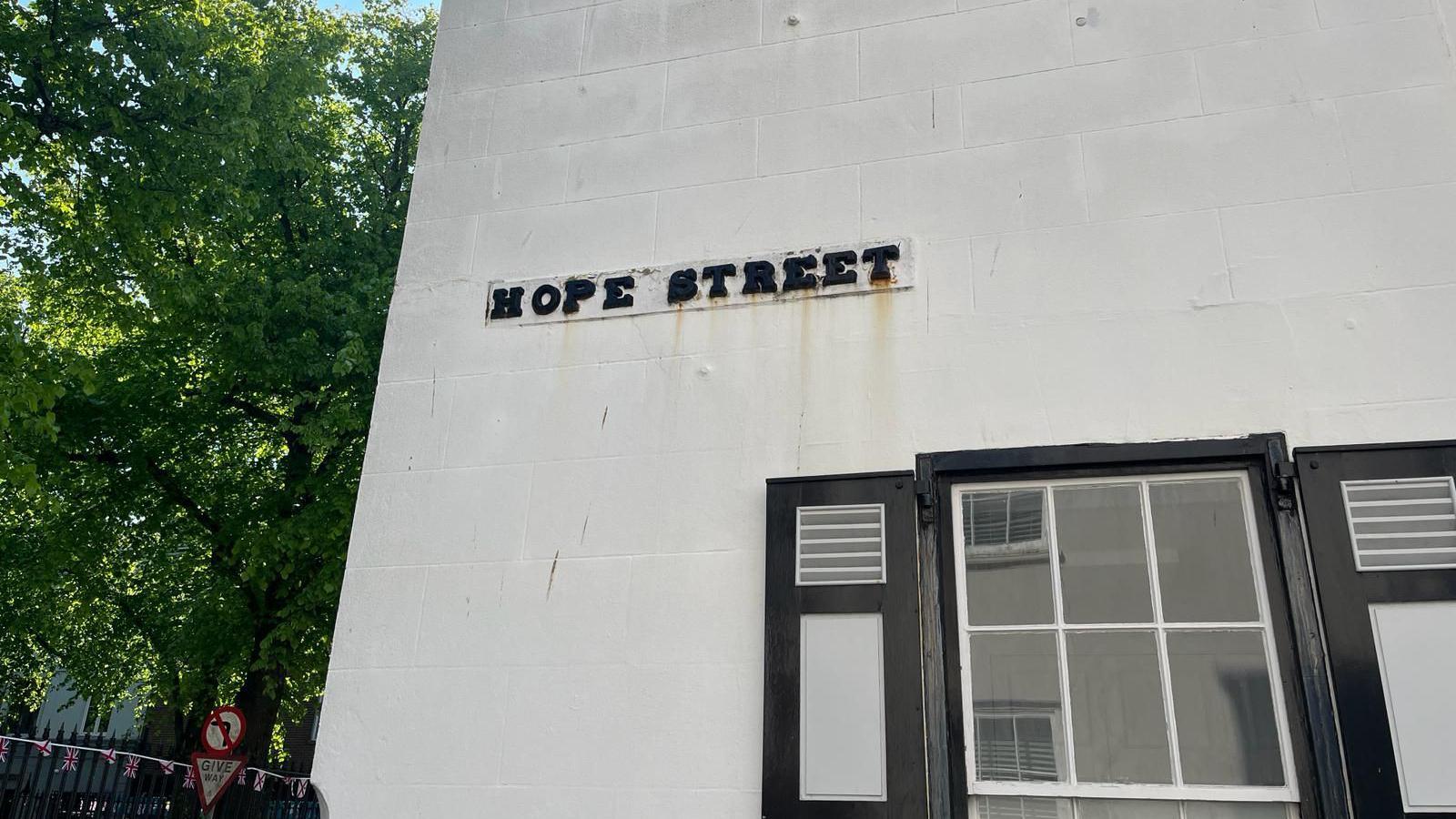
Gordon Prigent's stolpersteine will be placed outside his former home at 3 Hope Street
'Provide moving commemoration'
Chris Addy from Jersey Heritage said the stones were a nice way to remember people.
He said: "The 20 Stolpersteine in Jersey will provide a moving commemoration for survivors of the Occupation, and we hope there might be an opportunity in the future to add further stones to remember people who lived through these difficult years."
Mrs Prigent said she was looking forward to seeing her husband commemorated.
She said: "I'm very proud, he never really spoke about what happened - for him it was just 'that's life', and we carry on.
"They're going to put it [the stone] in the pavement outside his house - I'm very pleased."
Follow BBC Jersey on X (formerly Twitter), external and Facebook, external. Send your story ideas to channel.islands@bbc.co.uk, external.
Related topics
- Published1 May 2024
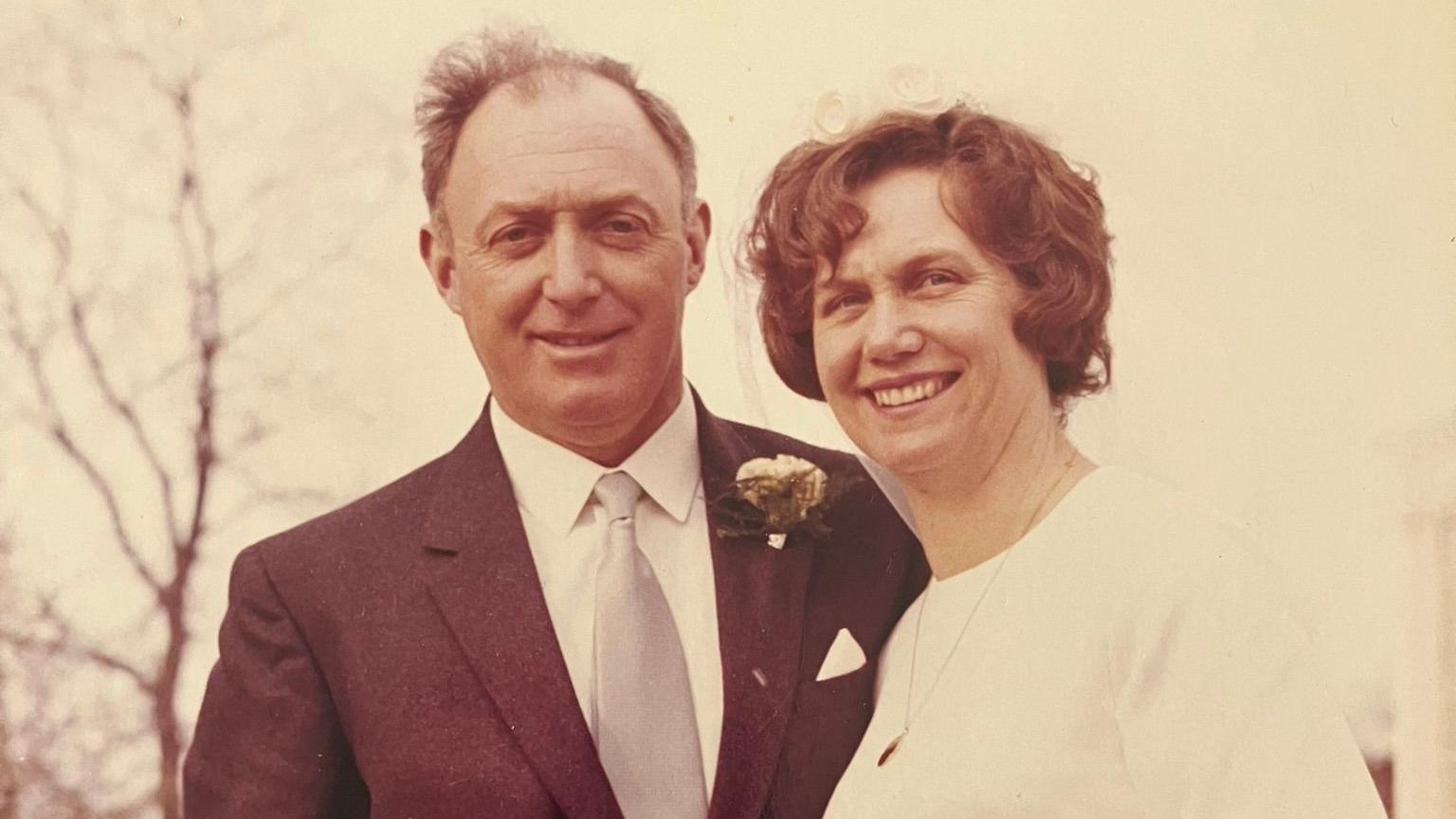
- Published16 March 2024
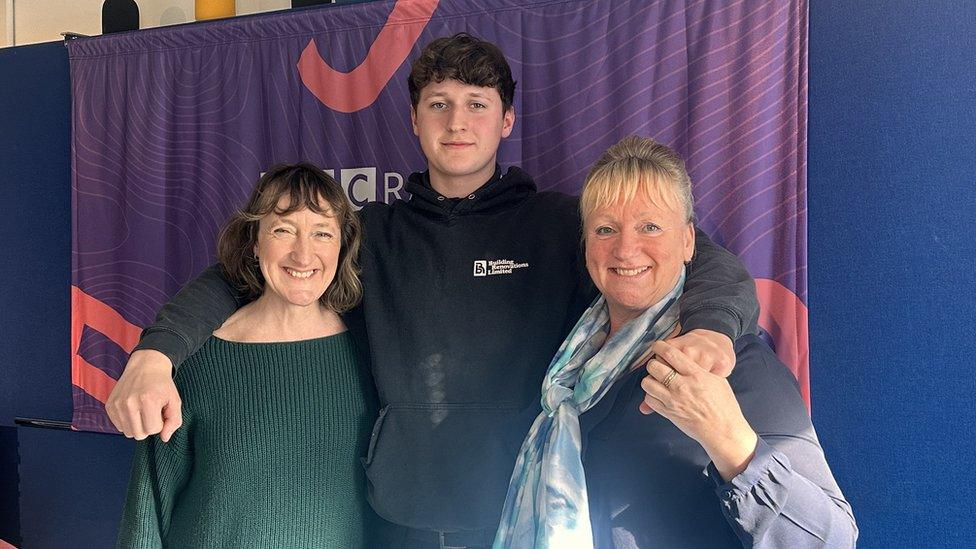
- Published6 October 2023
